Anxiety: the World's Most Misunderstood Emotion 🤔
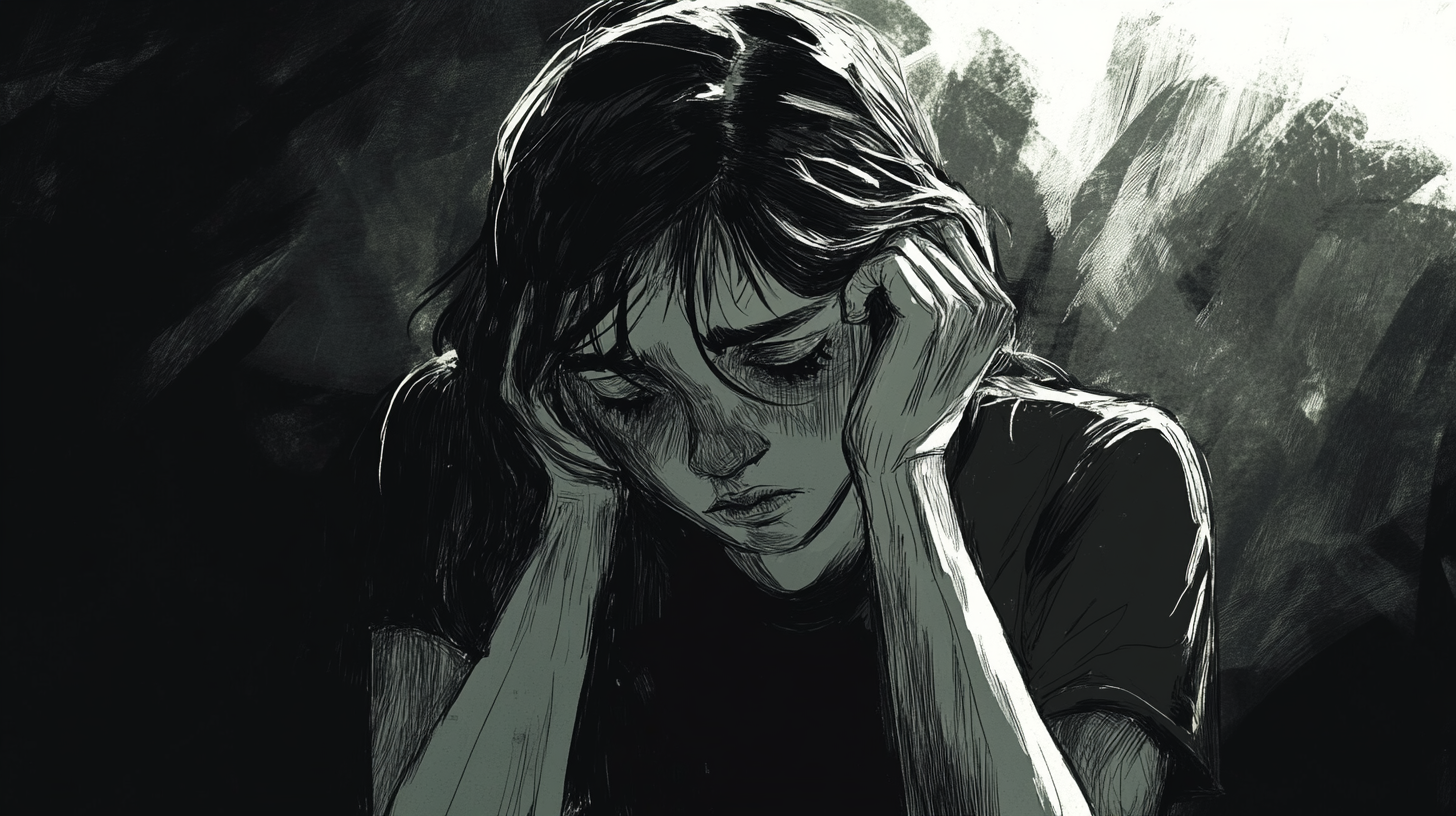
Anxiety is everywhere.
According to pretty much every statistic measuring it, there has been a steady increase in people feeling a sense of dread or fear about their lives. And it’s global.
It’s believed around 4% of the global population currently experiences an anxiety disorder - more than 300 million people. That makes anxiety the most common mental disorder on earth right now.
Admittedly, anxiety is a broad church. Inside it are things like panic disorders, constant worry, PTSD, OCD, and so on. There is also a giant, hulking pharmaceutical industry with a vested interest in making pills to treat our anxiety - as opposed to confronting what makes us anxious in the first place. But I’m going to leave that shouting match for another time.
In summary, we absolutely hate anxiety. There are vast forums talking about how horrible it is, and there are millions upon millions upon bloody millions of posts on how to combat it. But I’m going to try my very best to argue, anxiety is not the emotional boogeyman we think it is.
Anxiety, like all of the things we feel and experience, has a place and a purpose. If we can recognise what that place is, and what anxiety is supposed to do, we might, just might, want to think about seeing it as less of a fiend, and more like a friend.
What is anxiety? 🧐
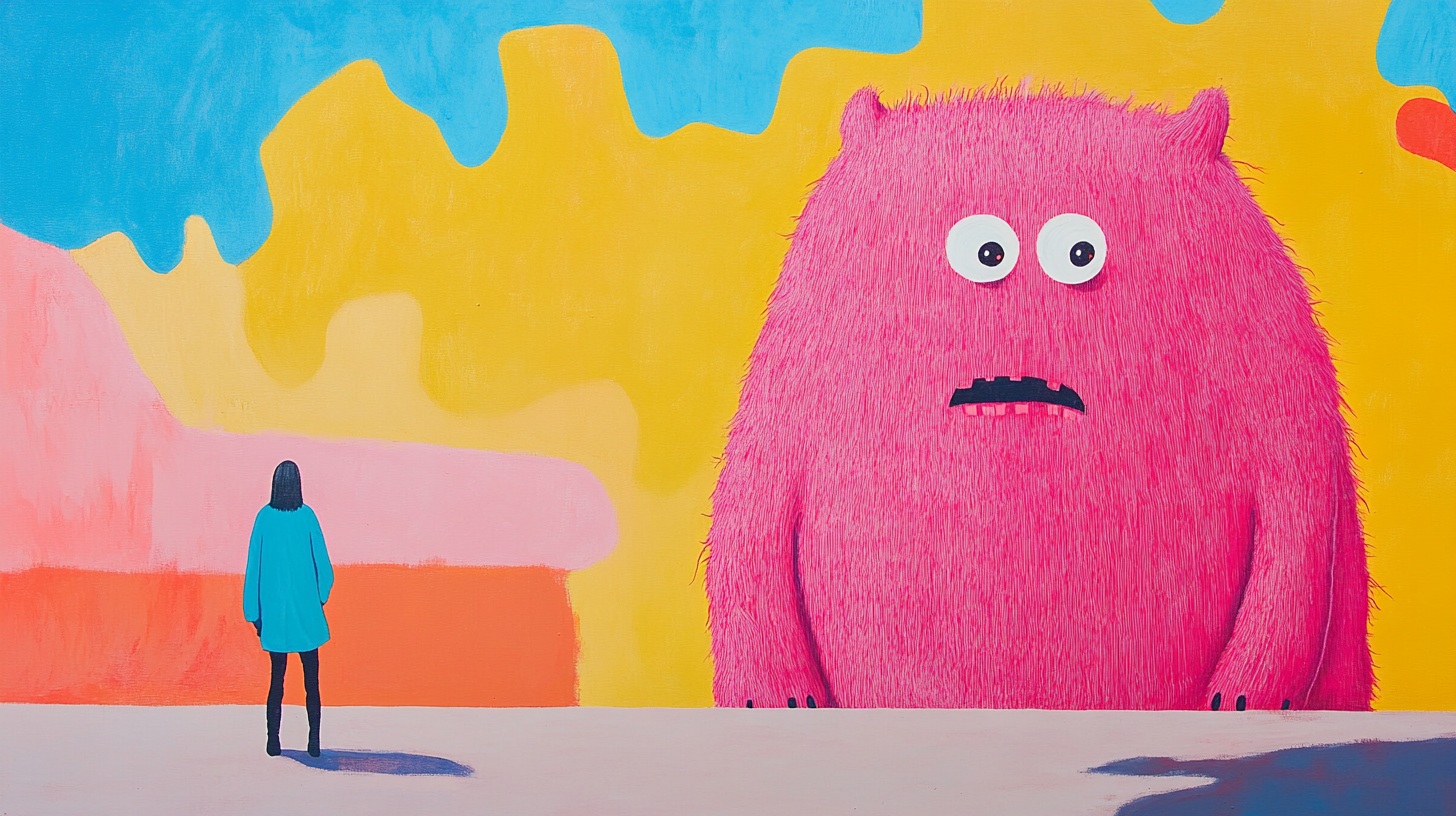
This may sound like a stupid question, but it’s an important one, which I’m going to be returning to over and over in this week’s newsletter. I’m going to split the answer into two parts. The first is what is our understanding of anxiety, and the second is, how do we feel about it? That may feel like semantics, but I think it will be helpful to find a different way of exploring it.
At its simplest (thanks to Mind for providing this) anxiety is what we feel when we are worried, tense, or afraid – particularly about things that are about to happen, or which we think could happen in the future.
Where does it come from? Most neuroscientists believe it comes from the limbic system, the really, really old part of our brain responsible for processing what happens to us and how we respond to it. The limbic system is responsible for the four F’s:
- Feeding
- Fleeing
- Fighting
- F**cking
Anxiety’s role in all of these wonderful Fs is to try and manage and predict what might happen next. It’s our brain’s crystal ball into the future. Over the millions of years our brains have been forming and evolving, something happened, according to Harvard psychologist, Amit Goldberg. Our brains worked out that it was beneficial to have anxiety. Why? Let’s take an example:
You and your prehistoric friends are walking across the Savannah, and you come across a pool. It’s a hot day, and the thought of water brings fresh relief. But it also brings doubt: is it safe? Is there something in the water that might want to eat us? Do I know how to swim if I fall in? Do I even know what ‘swimming’ even means?
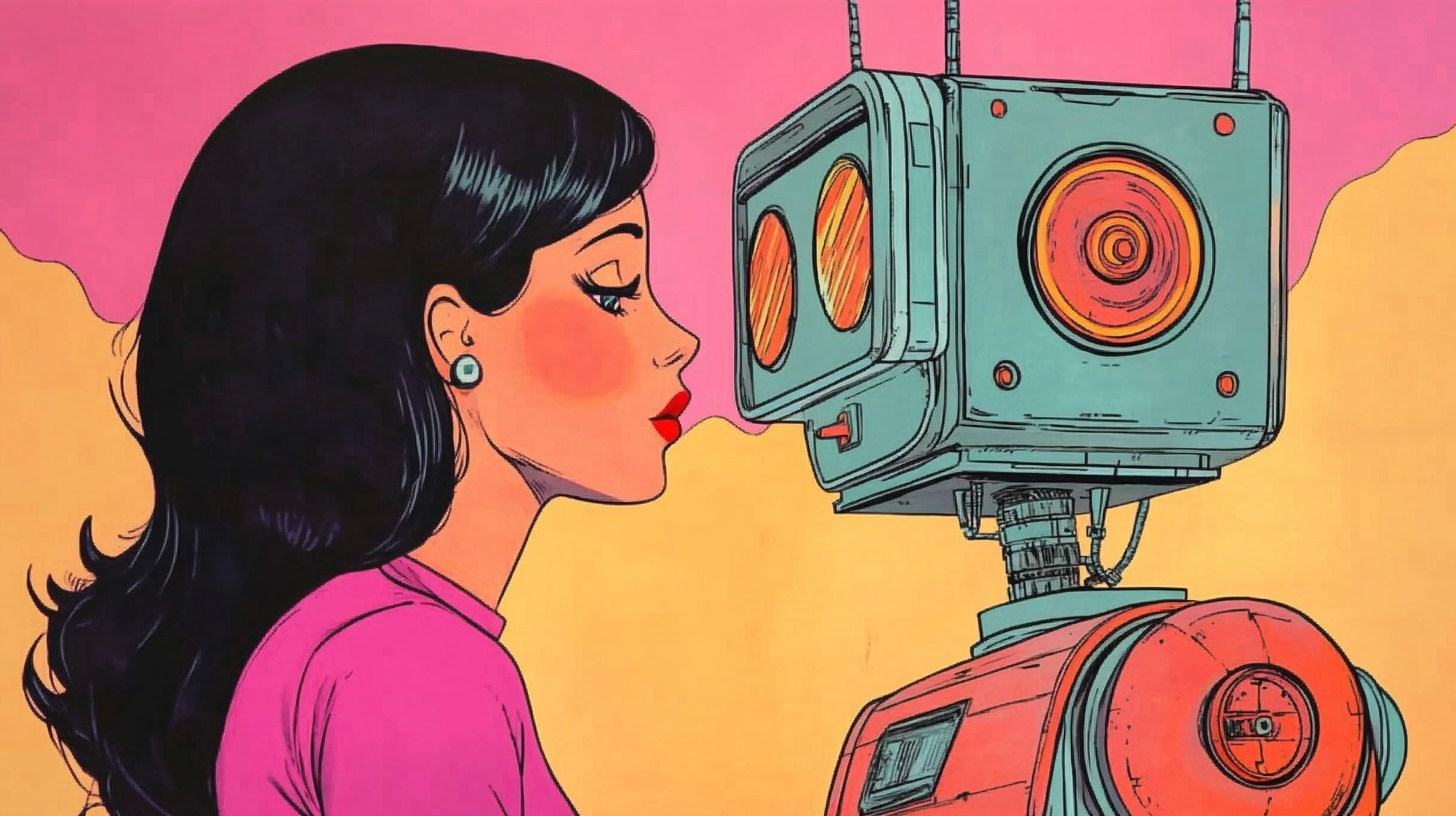
Anxiety is protective in its function: it’s a threat-detecting device, a radar for bad stuff. That radar can be built from previous experience, but it can also be built by others’ experience too. Anxiety is contagious, it can be passed from person to person. Again there is a benefit for this. If you see someone running away from something on fire, their anxiety becomes your anxiety and you’ll probably run away too.
Back to the example: your brain is telling you not to go in, but your friends shrug off your caution and dive into the deep end. Turns out it was a hotspot for hippos and crocodiles, and one of you gets eaten. Anxiety did its job. You survived, which means you can pass on this sage wisdom to the next person. Repeat that idea over millions of years and you have a sense of why anxiety has hung around for so long: its role is to protect you from future harm.
But that hasn’t stopped us from talking about the downsides. We’ve been doing that for as long as we could speak.
A Brief History of Anxiety 📜
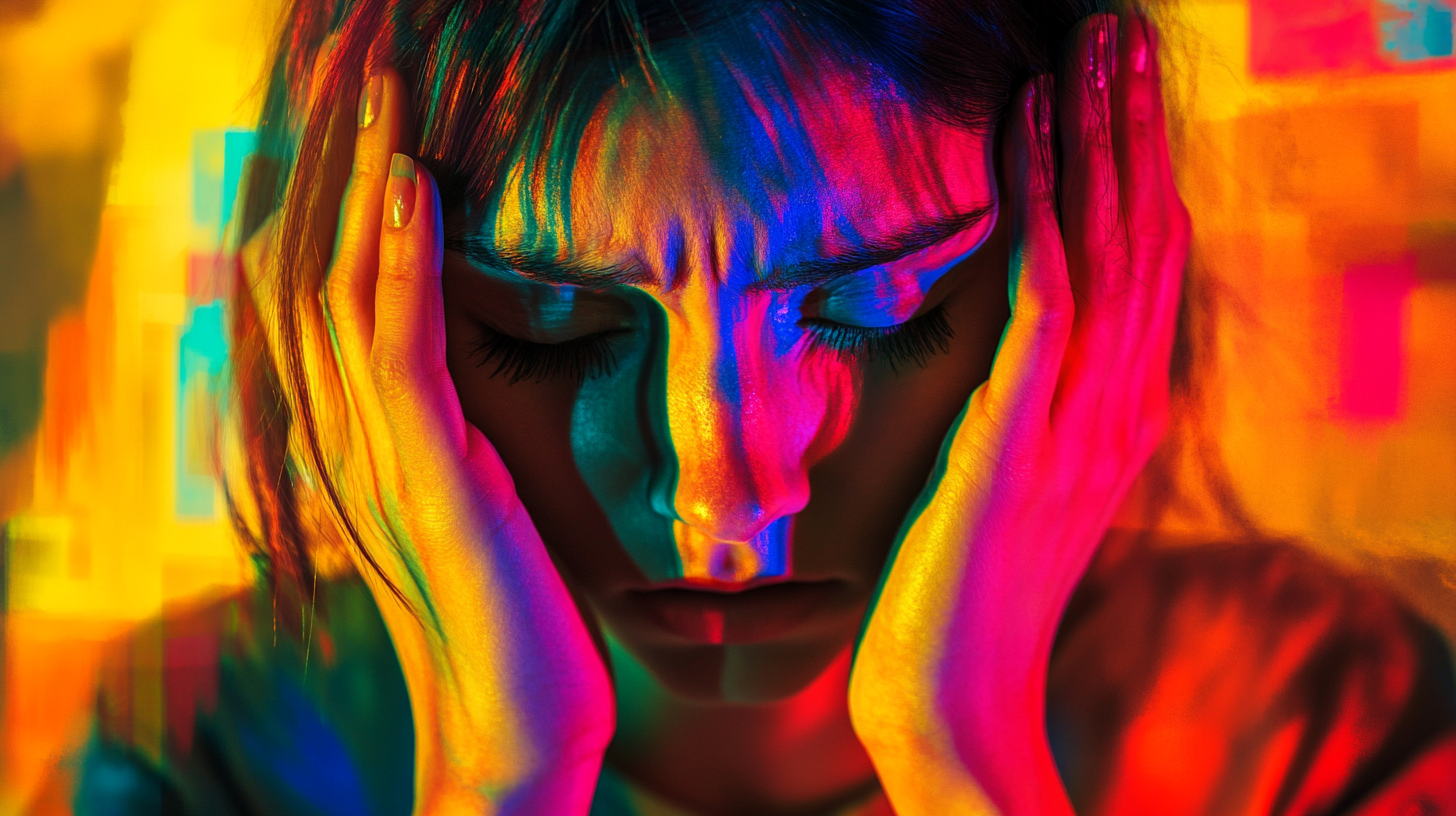
We’ve been talking about anxiety-related ideas for a really long time. There are descriptions of anxiety in ancient Indian writings as far back as 5000 BC. The ancient Greeks loved to talk about it, too, some 2,000 years ago.
The Hippocratic Corpus, a collection of Greek medical texts believed to be written by Hippocrates spoke of a man who suffered from “mass terrors” when he heard a flute at night. They called it “pathos”, which translates into “suffering or experience”. I’m just going to say it: the sound of someone suddenly playing a flute in the middle of the night is an unwelcome experience for anyone.
It was the Romans who gave it the name that would begin our obsession with anxiety. They called it “angor”, and labelled it a disorder. The word angor would become “anxiĕtas” as Latin spread across Europe, giving rise to the word “angst” in Germanic languages. Seneca, the Roman philosopher wrote about it in his book Of Peace of Mind (De tranquillitate animi).
He believed to combat anxiety we needed to find ways of talking to those anxious parts and help them not worry so much. He said we should try and focus on the present, and less on the future. We’ll come back to that idea later.
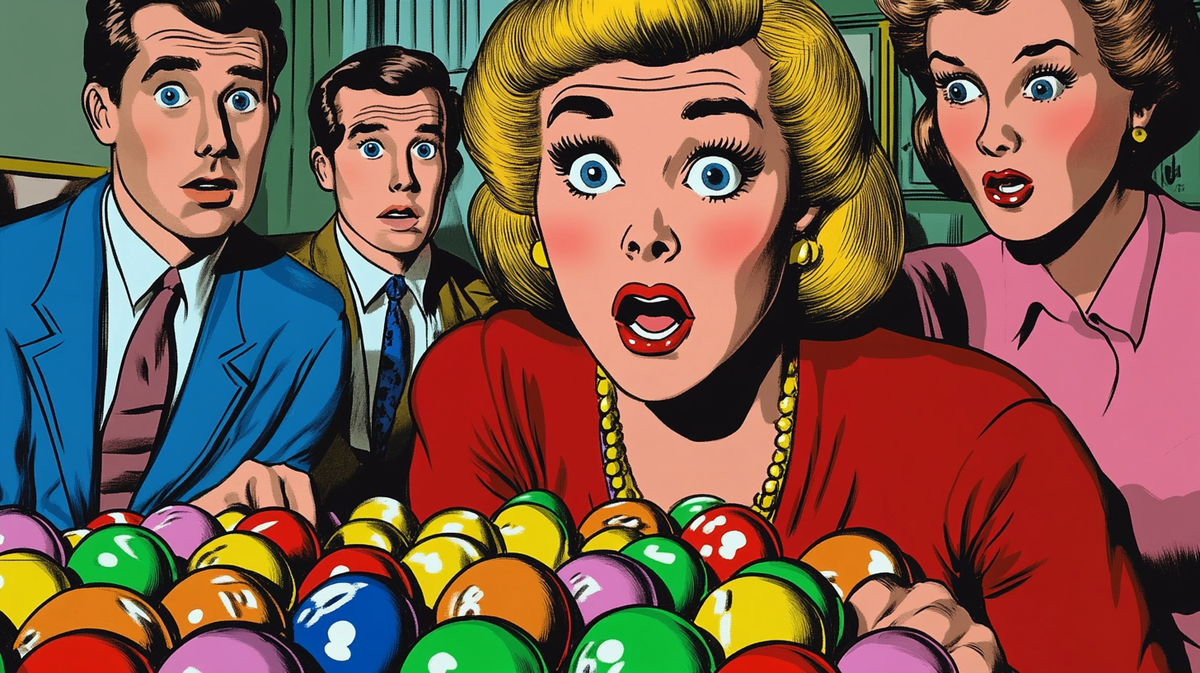
But after this flourishing of thinking about anxiety, we didn’t talk about it very much. The first recognised reemergence of our feelings about anxiety turned up in 1621, when Robert Burton, the seventeenth-century English priest, and scholar, wrote The Anatomy of Melancholy.
The book tried to dissect the author’s own feelings of melancholy by pushing and prodding it in different directions. One of the key parts of Burton’s melancholia was a sense of expectant dread about the future - what we understand to be anxiety. His work would later be used as the foundation for broader work on the subject.
In the 17th and 18th centuries, melancholia would be joined by Panophobia, which meant you were struck by panic or terror. There is a very good, extensive look at anxiety’s evolution here, but for now, what hopefully should be becoming clear is we don’t like anxiety.
It’s unpleasant, can be debilitating, and can rob us of a life free from worry. On the one hand, it’s a survival adaptation, but on the other, it can feel like a curse.
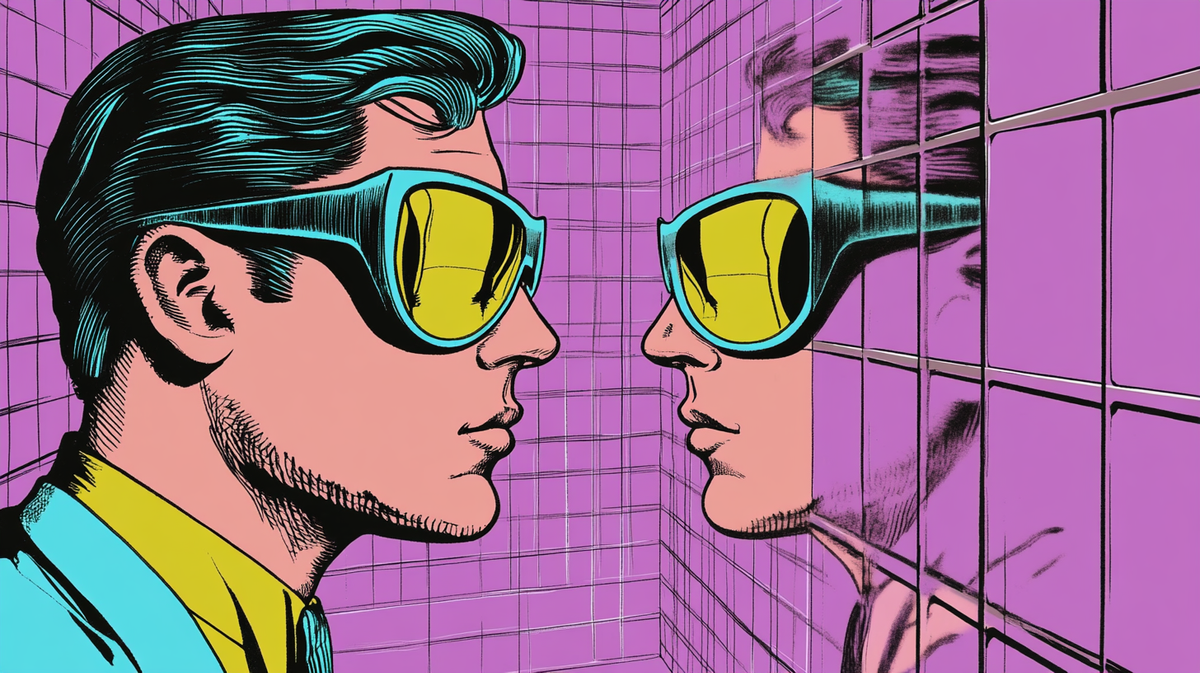
It’s what helped propel it into the first Diagnostic and Statistical Manual of Mental Disorders, published in 1952. It was here that anxiety became the disorder we feel it is today. While some anxiety is considered normal, what changed was we created a line between acceptable and unacceptable levels of anxiety.
Who decides where the line is? Well, that’s a question for another time. But during the 20th century, the idea was to create more certainty. To be able to accurately spot when someone was just having a rough time, and when they needed something more.
When it crossed that line, it became a way of identifying something as broken, or wrong with how we’re coping with the world. Today, some of the world’s largest pharmaceutical companies spend a lot of time and money trying to shunt anxiety back below that threshold. The anti-anxiety drug market is worth around $16 billion.
But in that noble quest to rid us of too much anxiety, might we have lost something in the process?
Anxiety’s brighter side 🌅
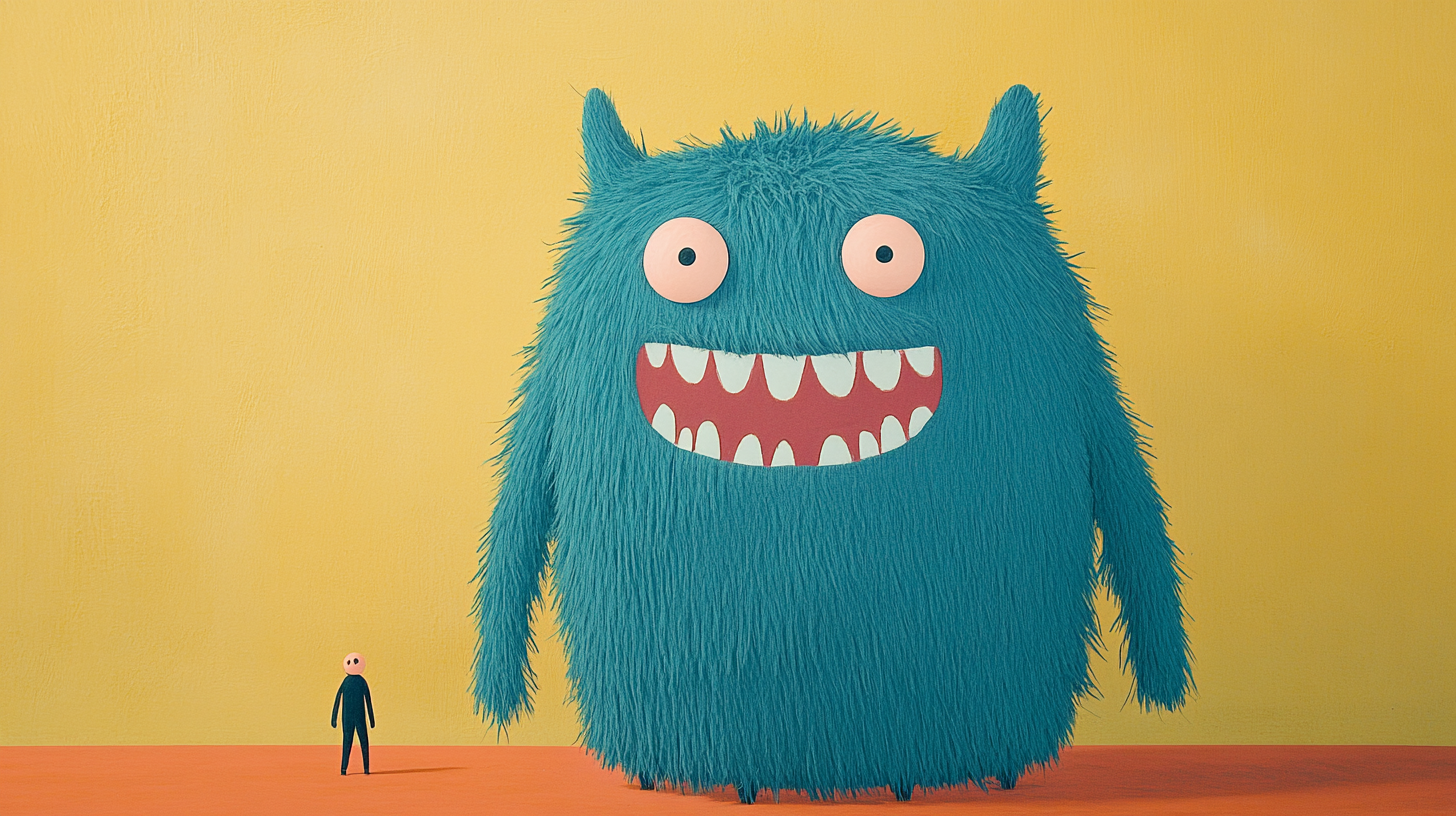
When something goes wrong, we try to fix it. When we feel sad, we try to alleviate it. If we see someone suffering, we want to fix it for them. These ideas are what makes us so successful: we’re problem solvers. We want to make things better.
During the 20th century, lots of very clever people wanted to make modern life feel, well, less shit. We wanted everyone to be happy. There’s a good reason for that: the 20th century was the most spectacularly violent, most destructive, and most disruptive humanity had ever seen. Doctors, psychiatrists, and therapists wanted to ease the burden.
How does this relate to anxiety? Well, according to psychologist Dr. Tracy Dennis-Tiwary, in our drive to eradicate anxiety, we approached it the same way we approached things like diseases: we tried to eradicate them.
“This disease story tells us, well, you have to prevent and eradicate and avoid it,” said Dennis-Tiwary on a recent podcast. “And it tells us those bad feelings are a warning sign. They’re a malfunction, perhaps, or a failure of happiness, of mental health, so we have to fix it.”
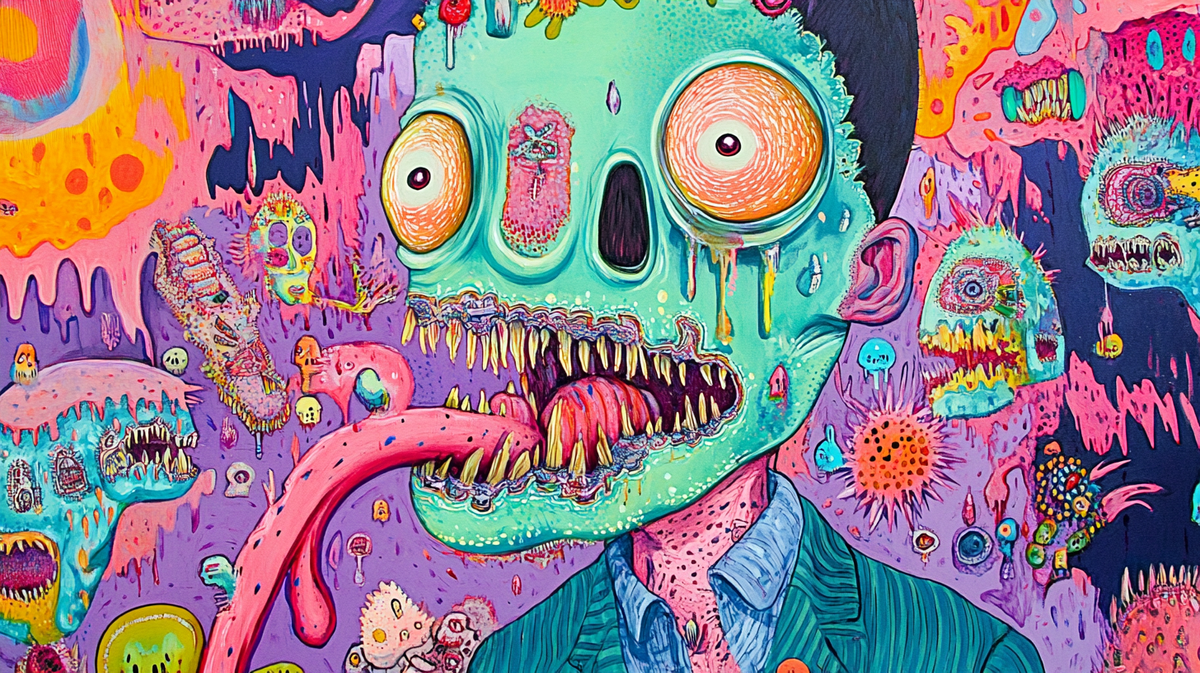
The medical model of anxiety says its presence is unwanted, so we should try and get rid of it. But when we do that, our clever brains start to adapt. They do what anxiety has always done: make our threat detection go into overdrive.
We become anxious about anxiety. We learn that anxiety is awful, and we should do everything we can to avoid it. This, argues Dennis-Tiwary, causes us to shift our perspective on what anxiety means.
When we see anxiety, we run. We don’t want it. But anxiety follows us, it is us. It wants to protect us. Think of it as a smoke alarm. A smoke alarm goes off because it thinks something is wrong. We can ignore it. We can put earplugs in, we can go to another room, we can leave. But if we don’t investigate it, the house might burn down.
Anxiety is an invitation to investigate something. It’s also a reminder that we care A LOT about how life goes. We don’t want to embarrass ourselves in social situations, we don’t want to mess up a test, or a date, or a job. Anxiety is a reminder that we care.
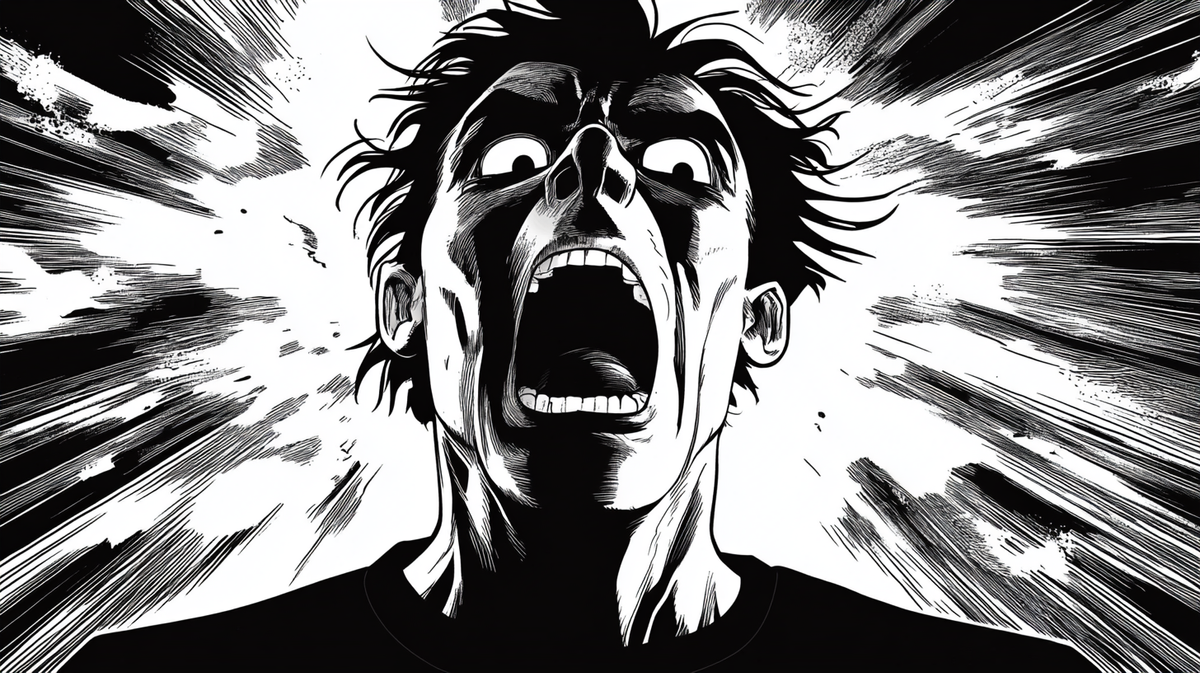
Before I march triumphantly off into the distance having convinced you that anxiety can be an ally, I want to talk about what happens when anxiety becomes too much, when the smoke alarm inside our brains blocks out everything. Where a medical diagnosis might come and say you have an anxiety disorder.
That is a terrible, awful moment. Anxiety can completely incapacitate us, it can block out everything else. Finding help to lower the volume is important, and medicine can help. But those moments can and will pass.
When they pass, we have an opportunity to ask ourselves: how do I stop letting the anxiety alarm become so loud I can’t hear anything else? The same way other parts of our bodies learn to adapt: by exposing ourselves to it frequently and often in small doses.
Our immune systems get stronger when they’re challenged. Our muscles get bigger when they’re stressed. Our hearts get healthier when we force them to work harder. Our ability to cope with anxiety improves when we learn to live with it. To investigate it, to prod and explore, and to learn.
Is it a tricky thing to know? You betcha. But is it worth it? Absolutely.
Things we learned this week 🤓
- ⚖ Want to improve employee performance? Catch someone behaving unethically.
- 📰 The more news you read the more likely you are to be nasty to those who don’t agree with you. Thanks news!
- 👨💻 The biggest contributor to burnout? After-hours work communication.
- 🧘♀️ Meditation can make us feel worse, says study.
Just a list of proper mental health services I always recommend 💡
Here is a list of excellent mental health services that are vetted and regulated that I share with the therapists I teach:
- 👨👨👦👦 Peer Support Groups - good relationships are one of the quickest ways to improve wellbeing. Rethink Mental Illness has a database of peer support groups across the UK.
- 📝 Samaritans Directory - the Samaritans, so often overlooked for the work they do, has a directory of organisations that specialise in different forms of distress. From abuse to sexual identity, this is a great place to start if you’re looking for specific forms of help.
- 💓 Hubofhope - A brilliant resource. Simply put in your postcode and it lists all the mental health services in your local area.
I love you all. 💋


